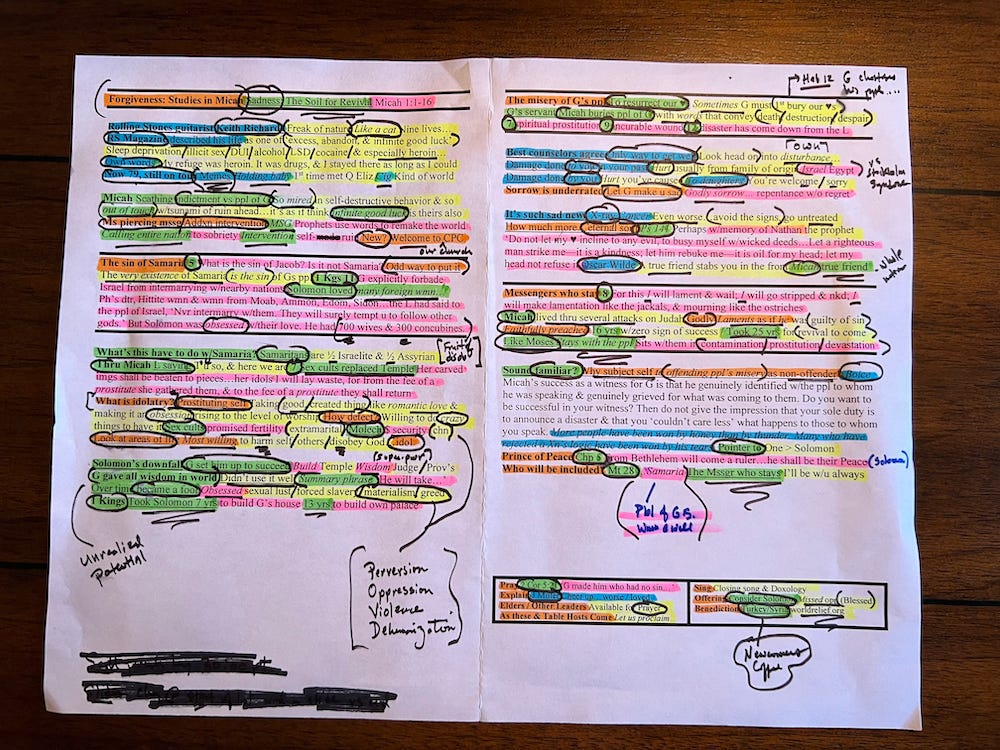From time to time, we pastors get asked about our process of writing sermons. In hopes that it could be helpful to my fellow pastors and and other public speakers, the following is my method.
When it comes to writing sermons, I'm not the best example as I spend less time than average preparing sermons these days. I think I'm able to write sermons quickly…
Keep reading with a 7-day free trial
Subscribe to Scott Sauls Weekly to keep reading this post and get 7 days of free access to the full post archives.




